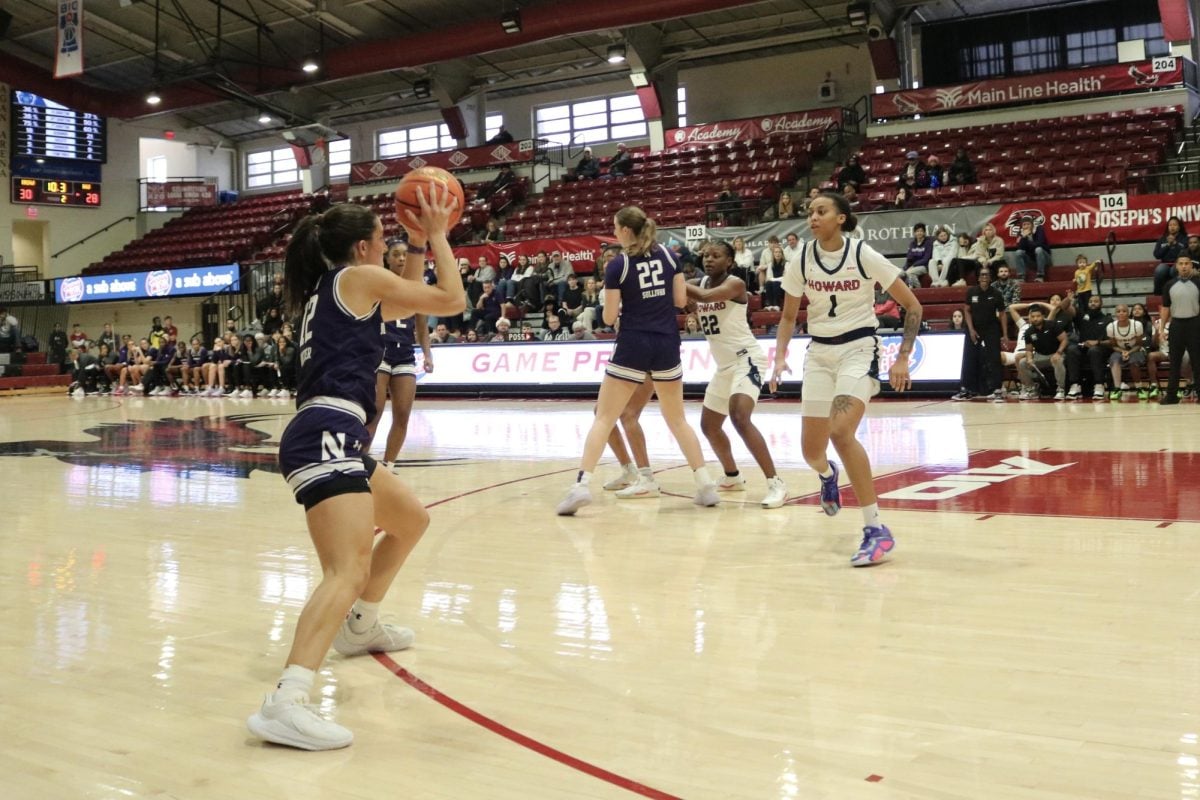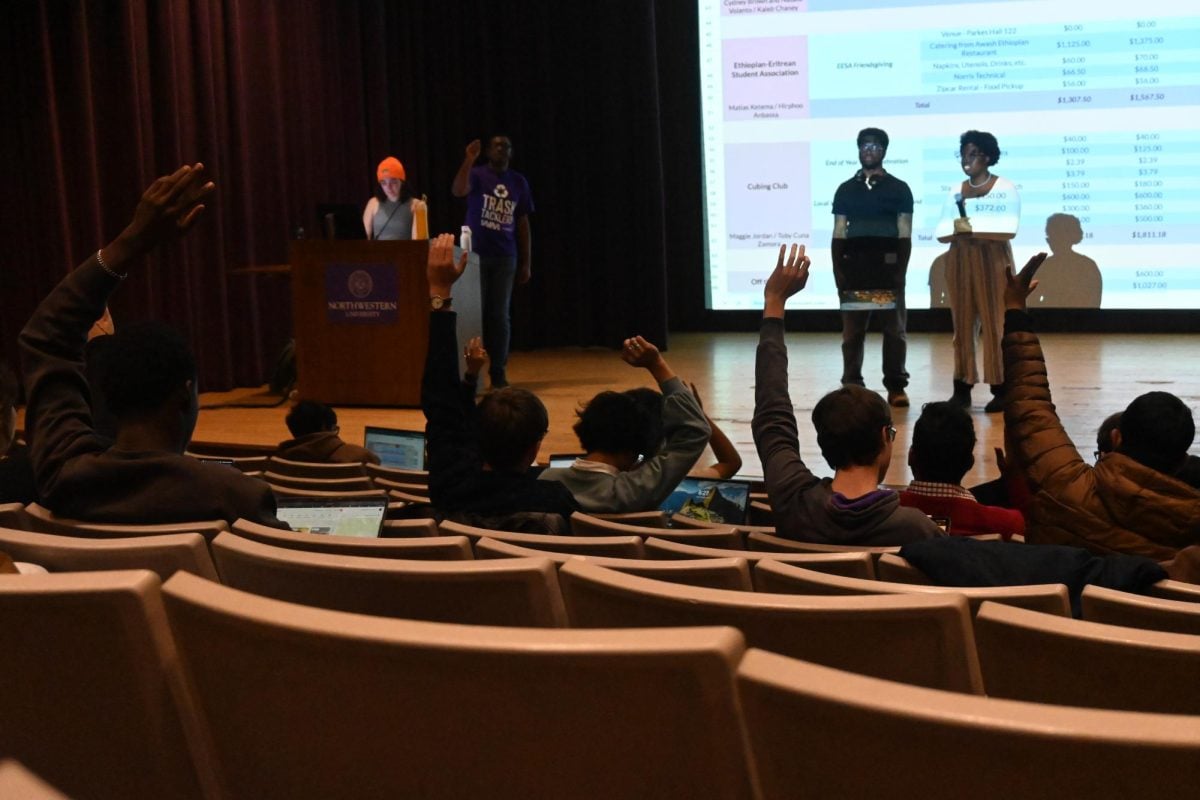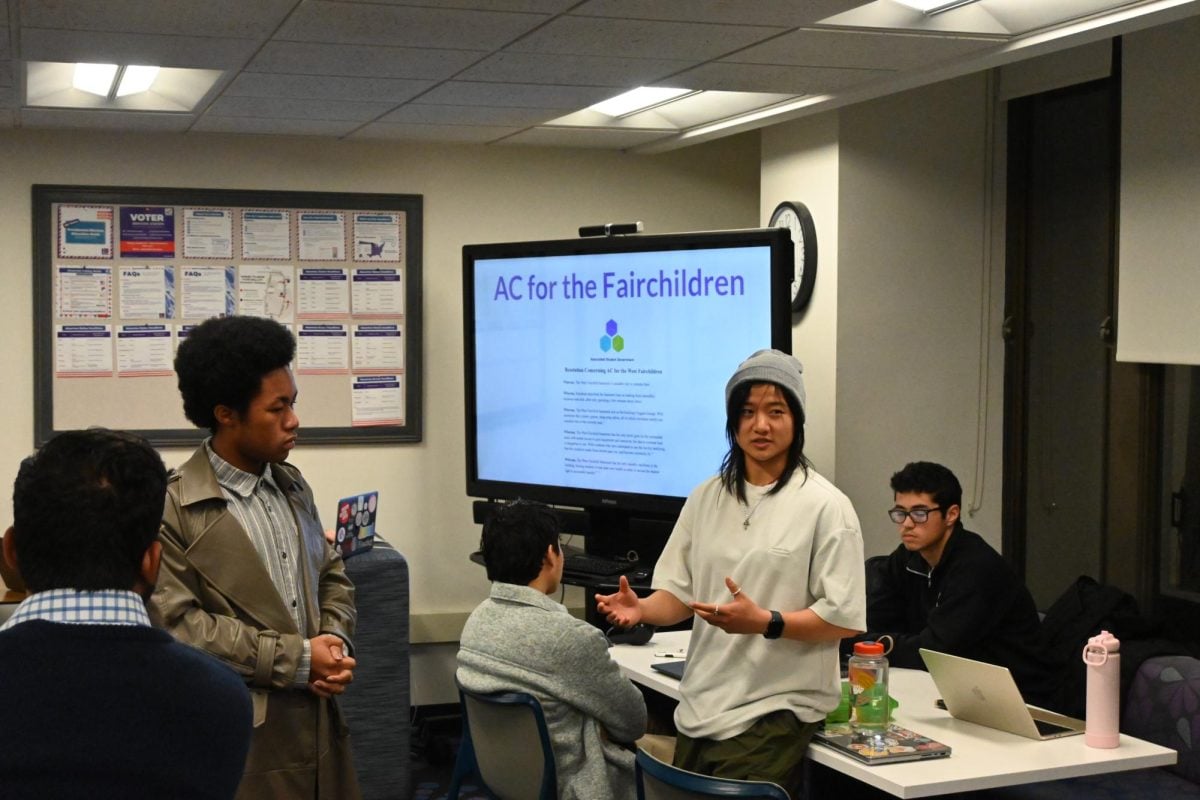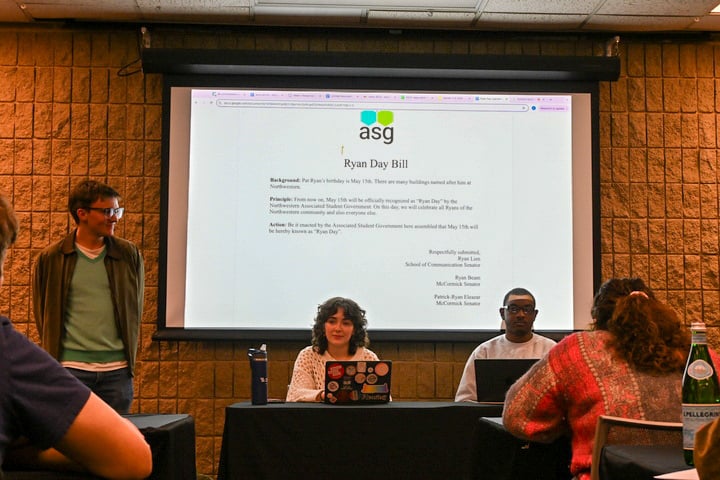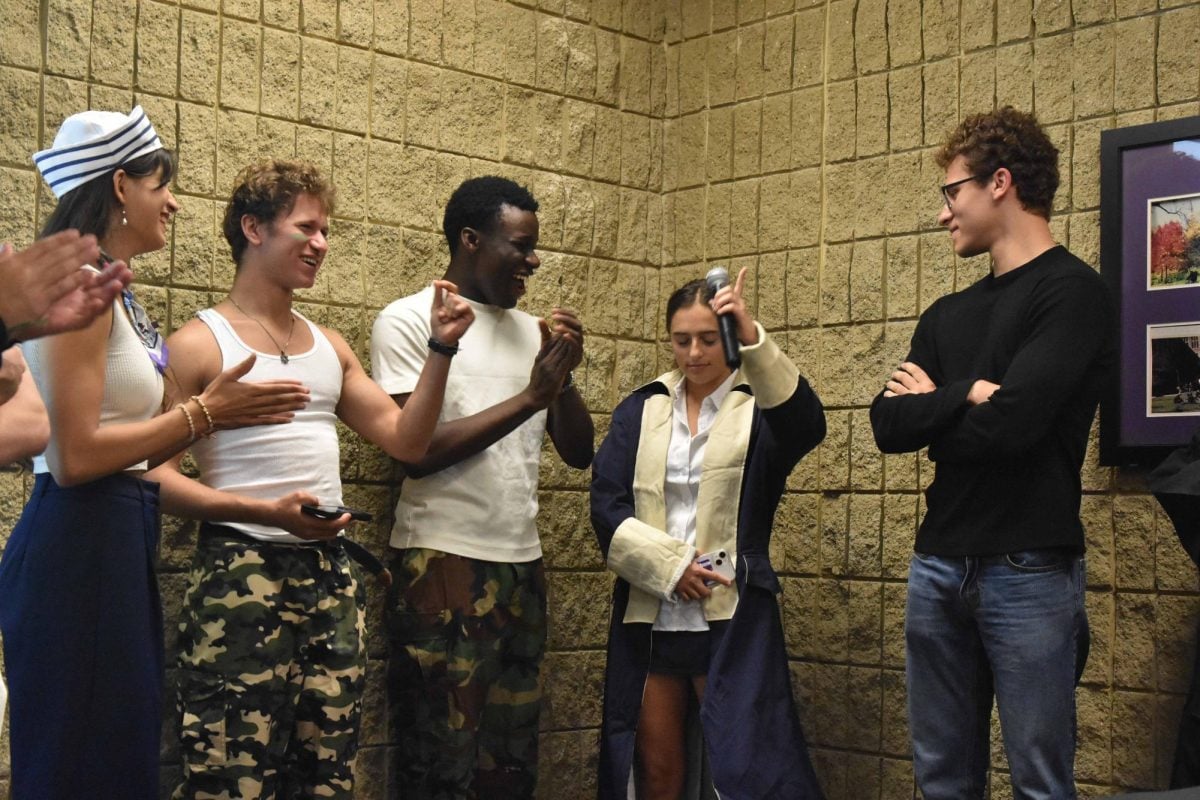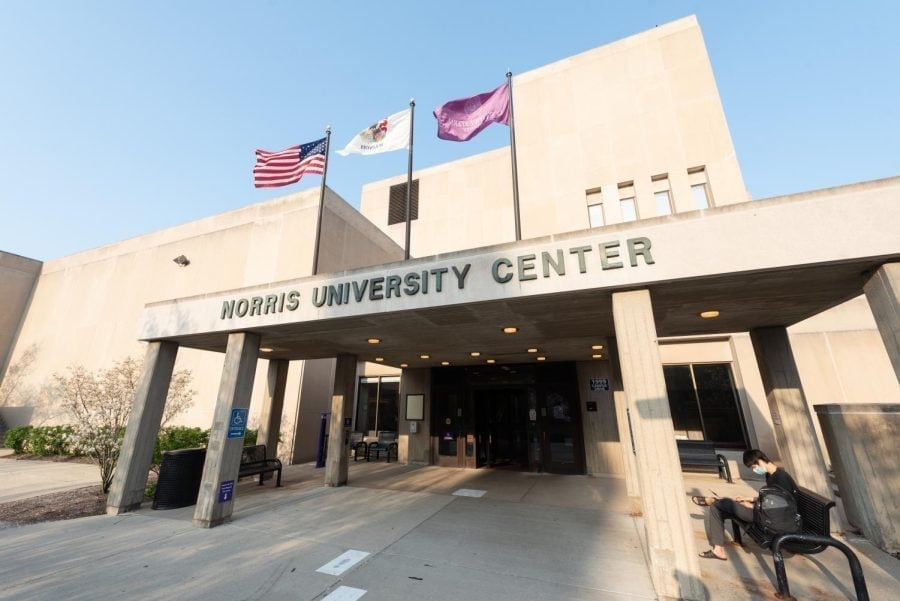Associated Student Government is scrambling to ease racial and political tensions after three nominations for cabinet positions were derailed amid heated debate last week.
Over the past few days, ASG president Ani Ajith has been meeting with caucus whips to address lingering concerns from Wednesday’s Senate meeting, during which two nominations were blocked over accusations of post-election favoritism. Another nomination was halted after some senators called for a more diverse candidate.
The acrimony has Ajith, a Weinberg junior, playing defense less than a month into his presidential term.
“Every candidate was given a fair shot, no matter who they are, what they did, or whose campaign they supported,” said Ajith, a former Daily staffer.
Despite Ajith’s assurances, some senators say the contentious meeting revealed larger problems with how the executive board is chosen.
“Senate resents the way in which candidates are selected right now,” said Carly Blumenfeld, outgoing chief of staff. “They do not have an opportunity to participate in that process.”
‘Us versus them’
The most tense episode of Wednesday’s meeting came after Sargent Hall senator Jesse Seitz asked Stephen Piotrkowski if being a white male helped his nomination for associate vice president of diversity and inclusion.
“When you’re forced to work with all these multicultural groups that are, for the most part, not made up of white males, do you think you have the perspective that is not their perspective, to bring to them?” asked Seitz, a Weinberg junior.
“You can have that back and forth with them,” Seitz added, starting to fumble his words.
Ajith stood up, leaned forward and looked directly at Seitz.
“I feel isolated,” Ajith said. “We’re not ‘them.’ There’s no ‘us’ versus ‘them.’”
Some senators burst into applause at Ajith’s intervention.
After another half hour of questioning and more than 15 minutes of closed discussion, Piotrkowski, a Medill sophomore, became the third nominee for the executive board to be blocked that evening.
Several multicultural groups attended the confirmation to speak out against Piotrkowski’s nomination.
McKenzie Maxson, the senator for Willard Residential College, said unlike the first two nominations blocked by the Senate, influences from groups outside ASG sparked the controversy.
“I didn’t get the impression that it was controversial within Senate until people heard how upset some of the people from groups that came in were,” the Medill freshman said.
Ian Coley, a member of ASG’s diversity and inclusion committee, said Piotrkowski is not qualified for the position because he does not belong to an underrepresented group on campus.
“This university is not ready, in any capacity, for a heterosexual white male to be in charge in any way of diversity and inclusion,” said Coley, an off-campus whip. “I don’t know if any university is.”
Hayley Stevens, the outgoing associate vice president for diversity and inclusion, stood by the decision to nominate Piotrkowski, who worked for her on the diversity and inclusion committee.
“He was our best candidate,” she said. “My position is not meant to represent the multicultural community. That’s not what it’s here for. We are here to hear about different diversity initiatives going on across campus. We’re meant to streamline them. We’re meant to connect them to other groups.”
Political favoritism?
The meeting grew tense during a question-and-answer session with Stephanie Hong, the nominee for chief of staff. Neither Hong, a Weinberg junior, nor Julia Watson, the nominee for public relations vice president, were confirmed for their positions amid what some senators saw as political favoritism.
Although the names of applicants who apply but are not nominated for executive positions are supposed to be confidential, the identities were internally leaked, and Coley shared the information with The Daily. Coley said some members of ASG knew Hong was picked over Blumenfeld and Watson, a Weinberg sophomore, over SESP junior David Harris, who finished second to Ajith in the ASG presidential election.
Blumenfeld, a Weinberg junior, supported Harris’ failed presidential run, while Watson served as Ajith’s campaign manager. Coley said some senators thought political alliances played a role in the nominations, something Ajith denies.
“Our nominees were extremely bipartisan,” Ajith said. “There were three nominees who supported folks other than myself and (ASG executive vice president) Alex (Van Atta), two nominees who did publicly endorse us, and two who were completely neutral.”
Stevens said knowledge of the other applicants clouded discussions over whether to confirm some nominees.
“It shifted the entire conversation,” the Weinberg senior said. “If people on exec and the candidates themselves had kept quiet and didn’t reveal anything, this wouldn’t be a problem.”
Moving forward
Senate on Wednesday will try to find a procedure to fill the vacancies.
“In terms of how we view it … it’s kind of like hitting the reset button,” Senate speaker Katie Funderburg said. “The previous cabinet selection process is not a factor.”
Still, some members of ASG believe the controversy stems from broader flaws of the organization.
Maxson, a former Daily staffer and member of the new Senate reform committee, said more professionalism may have prevented some of the heated exchanges and hurt feelings.
“People let it get too personal, and that was where a lot of the problem was,” she said.
Funderburg, a Weinberg junior, said vacancies on the executive board are slowing down its transition process.
“We’ve definitely been set back a couple weeks,” she said. “But as long as we’re able to fill vacancies this quarter, then heading into next quarter we should be going strong.”






